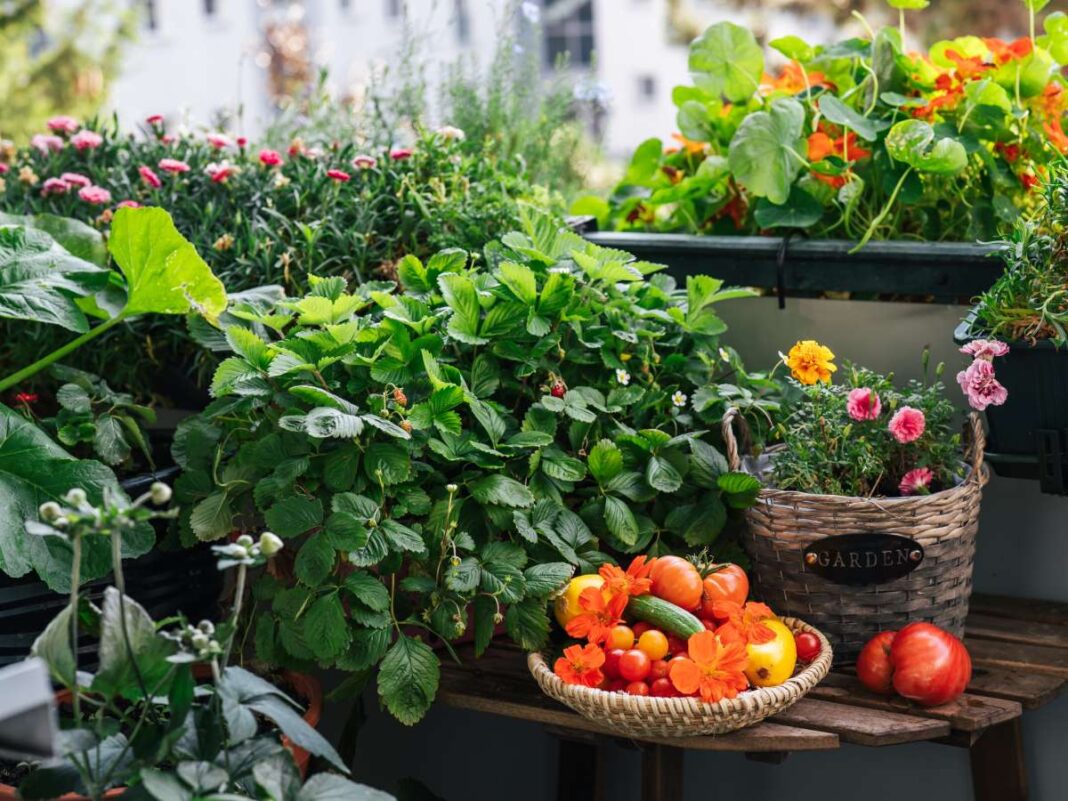Amid towering skyscrapers and bustling streets, a green revolution is quietly unfolding. Urban gardening transforms city landscapes into vibrant pockets of nature, allowing residents to reconnect with the environment and cultivate their slices of paradise. This practice beautifies our urban spaces and brings many environmental, social, and personal benefits that enrich our lives in countless ways.
The Urban Gardening Trend
Urban gardening is more than just a hobby; it’s a movement towards sustainable living and community well-being. By embracing urban agriculture, cities are witnessing improved health outcomes, strengthened community bonds, and enhanced resilience against climate impacts. These green spaces serve as vital sanctuaries, especially in areas where access to nature is limited due to historical policies like redlining and economic segregation. Urban gardens promote exercise, reduce stress, and foster social ties, making neighborhoods safer and more connected.
Benefits Beyond the Green
Improving Health and Well-being
Engaging with urban gardens offers profound health benefits. Tending to plants can reduce stress levels, enhance mental clarity, and encourage a more active lifestyle. Community gardens become hubs where people come together, cultivating not just plants but also relationships that lead to stronger, more cohesive communities.
Environmental Impact
Urban gardens play a crucial role in environmental stewardship. They help mitigate the urban heat island effect through vegetation that improves air quality and manages stormwater runoff. Moreover, these green spaces provide habitats for wildlife, supporting biodiversity right in the city’s heart.
Sustainable Gardening Practices
Embracing sustainable gardening practices ensures that your urban oasis is beautiful and eco-friendly. Here are some tips to get you started:
Plant Indigenous Species
Opt for native plants well-adapted to your local climate and soil conditions. This choice reduces the need for excessive water and fertilizers, making your garden more sustainable in the long run.
Companion Planting
Utilize companion planting techniques to enhance biodiversity and natural pest control. By strategically planting certain species together, you can create a self-sustaining ecosystem that thrives without the need for harmful chemicals.
Water Conservation
Collecting rainwater for irrigation is an excellent way to conserve resources. Setting up a simple rain barrel system allows you to water your plants efficiently while reducing your environmental footprint.
Soil Health and Composting
Healthy soil is the foundation of a thriving garden. Regularly monitor your soil’s health and enrich it with natural compost. Composting kitchen scraps and garden waste reduces landfill usage and provides plant nutrient-rich fertilizer.
Maximizing Small Spaces
City living often means limited space, but creativity can turn even the smallest areas into lush gardens.
Vertical Gardens
Make the most of vertical space by growing plants on walls, fences, or trellises. Vertical gardening is a fantastic way to cultivate various plants without requiring extensive ground area.
Container Gardening
Use pots, planters, or recycled containers to grow herbs, vegetables, and flowers. This method is versatile and ideal for balconies, patios, or rooftops.
Hydroponic Systems
Consider hydroponic gardening, which allows you to grow plants without soil using nutrient-rich water solutions. This technique is efficient and space-saving, perfect for indoor setups.
Joining the Community
Urban gardening is as much about people as it is about plants. Getting involved in community gardens can enhance your experience.
Sharing Resources and Knowledge
Participate in local gardening groups or workshops to learn from experienced gardeners. Sharing tips and resources helps everyone grow together.
Supporting Local Initiatives
Many organizations offer programs and resources focused on sustainability and environmental education. Engaging with such groups can amplify your impact and contribute to broader environmental efforts.
Embracing Sustainable Living
Urban gardening is a stepping stone towards a more sustainable lifestyle. By incorporating eco-friendly practices, you’re improving your immediate environment and contributing to global efforts to combat climate change and promote biodiversity.
Eco-Friendly Tips
- Use Organic Materials: Opt for organic fertilizers and pest control methods to keep your garden chemical-free.
- Promote Biodiversity: Plant various species to create a balanced ecosystem that supports wildlife.
- Reduce, Reuse, Recycle: Incorporate recycled materials into your garden design for a unique and sustainable touch.
Conclusion
Connecting with nature through urban gardening enriches our lives and our cities. It’s an invitation to slow down, nurture life, and build a greener future from our backyards or balconies. Whether you’re an experienced gardener or just starting, the journey toward a greener life begins with a single plant.

